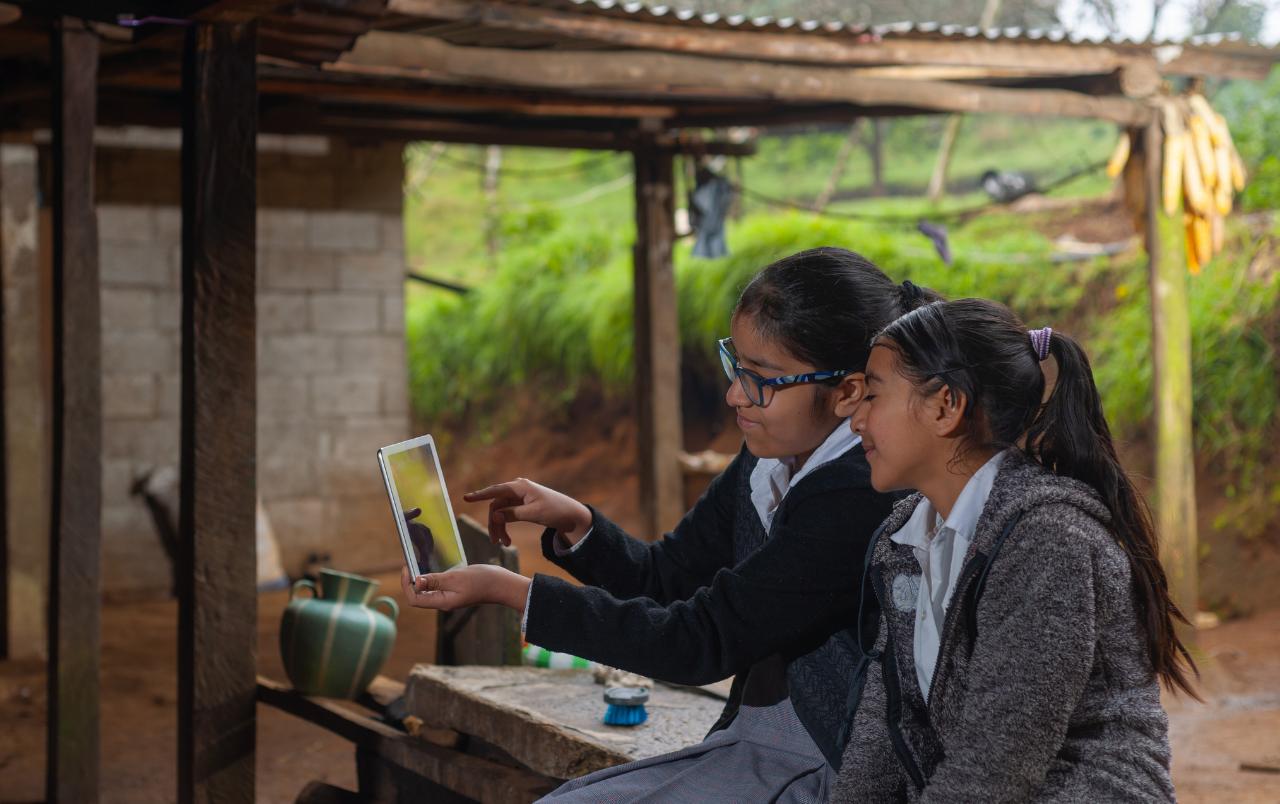What governance trends emerged during the pandemic, and what are their implications for the achievement of the SDGs?
by the Working Group on New Technologies
You may have heard about government-led programmes handing computers to children in developing countries. Like in Peru, 200 million USD were spent between 2007 and 2011 to distribute 900.000 computers to primary school children. The aim was to improve school performance, reduce repetition rates and avoid drop-outs. Unfortunately, the computers were left unused due to a lack of teacher training. While initiatives bridging digital technologies to education may be well-intended, they often fail to meet the expected outcomes.
Dante Castillo-Canales is Chair of the Latin American Working Group on New Technologies, an initiative facilitated by Southern Voice and the International Development Research Centre in the region. Together with Florencia Ripani and Santiago Cueto, regional experts in education and learning and working group members, they reflect on three aspects that hold the region back from leveraging the potential of digital technologies in education.
1. A mismatch in the speed of transformation of education systems and technology
Current educational systems were built upon the industrial society model, characterised by bureaucratic, conservative, top-down structures. This legacy makes them rigid and hinders its adaptability to rapid technological advancements. Such a mismatch in the speed of transformation of education and technology has numerous implications. Florencia Ripani argues it can decrease students’ motivation and learning as school practices become incompatible with children’s and youth’s cultural consumption patterns and expectations.
This difference in pace raises the question of who is responsible for ensuring that education systems catch up with the fast-paced evolution of technology. Dante Castillo-Canales emphasises that if the responsibility is left to families, segregation and inequalities are exacerbated because vulnerable groups lack the resources to keep up with technology’s fast-evolving scenario. It is of particular concern given the region’s well-known inequality rates.
According to Santiago Cueto, teachers alone cannot bear this responsibility either since they struggle to adapt to new technologies. Many did not grow up in technology-rich environments and need to be trained in using them for education. Teachers’ upskilling takes time and demands training, guidance, and resources. Florencia Ripani adds that existing regional programs and initiatives often overlook the need for teacher professional development or make it overly demanding by adding extra workload for already overburdened teachers.
While all actors in the education system have a role to play, the government’s preparedness to face this challenge is pivotal. Governments have a paramount role in making education systems less rigid. It is their task to devise innovative approaches to improve learning and reduce inequalities with the help of technology. Governments are also responsible for ensuring that other actors involved in providing education, such as the private sector, academia and civil society organisations, align their initiatives with national education goals.
2.The lack of technology-enhanced pedagogical models
To better support learning, Latin American pedagogical models can benefit from a higher degree of specification regarding what ‘integrating technology to education’ means. The three experts underscore that this starts by understanding technology’s potential as part of the contents of school curricula and as a tool to support education.
Embedding technology in national educational systems implies integrating concrete curricular content that encourages students and teachers alike to use digital tools. This content in school curricula allows and empowers them to develop digital skills, literacy and agency. It ranges from learning how to use computers or educational applications to digital safety practices.
The other, more complex side is developing a pedagogical strategy that leverages technology as a tool to support education. This means, understanding how, when and which type of technology can strengthen pedagogical practices in a given context compared to traditional methods.
A crucial aspect of such pedagogical strategy involves identifying how technology can facilitate students’ acquisition of demonstrable skills. The idea is to prepare them for the labour market-changing demands and to face the region’s future challenges. Educational technology has primarily focused on improving foundational learning. Still, students additionally need to develop skills that help them address the multidimensional challenges faced in the region, such as corruption, violence, or harmful gender stereotypes.
3. The discontinuity of initiatives due to the region’s political instability
Political instability in Latin America is a well-known phenomenon. Impeachments and changes in political regimes are commonplace. In Ecuador and Peru, government authorities are often removed even before concluding the election cycle. This constant turnaround affects the implementation of policies and continuity of programmes. Technology-related projects are no exception to this. All three experts argue that this constant flux makes learning agendas and digital education programs erratic and unsustainable.
Constant shifts in political agendas and ideologies aggravate the problem of inadequate planning and hamper how available resources are used. Take as an example the technical equipment of schools. The distributed devices often end up stacked in rooms or schools that lack enough electric outlets. To break away from such failures in the region requires technical knowledge and logistical aspects often overlooked in digital education programs.
Ensuring the programme’s continuity also requires developing a certain institutionality in its implementation, monitoring and sustainability, and securing access to educational technologies for the most vulnerable. Establishing long-lasting governance mechanisms to manage intersectoral coordination with the private sector is vital. It would address the region’s learning challenges, especially given the private sector’s prominent role in promoting and developing technologies for education.
These challenges are not comprehensive. Yet, addressing them will help the region to pivot in the right direction.
This article is an outcome of the Latin American Working Group on New Technologies, a collaborative research initiative that started in 2021. The Group brought together Latin American experts to support research and strengthen knowledge exchange about the impacts of the rapid digitisation prompted in the region during the pandemic.


